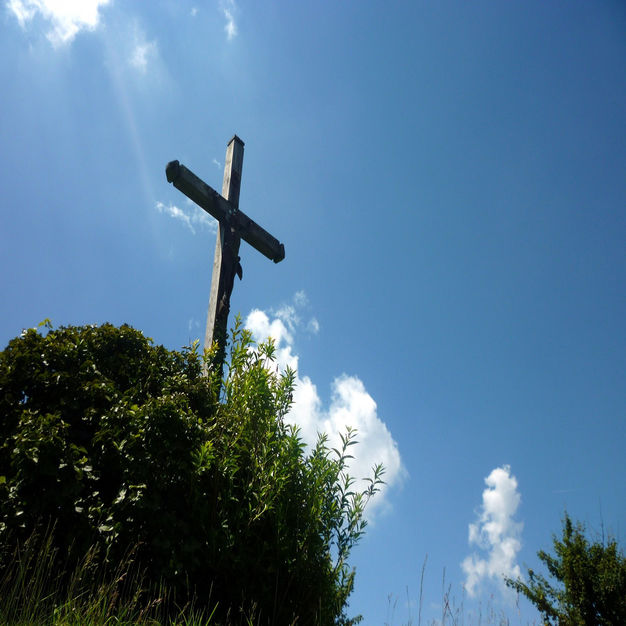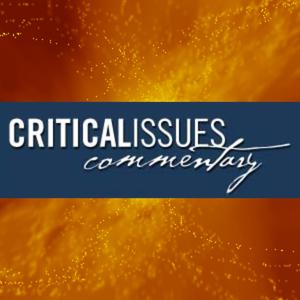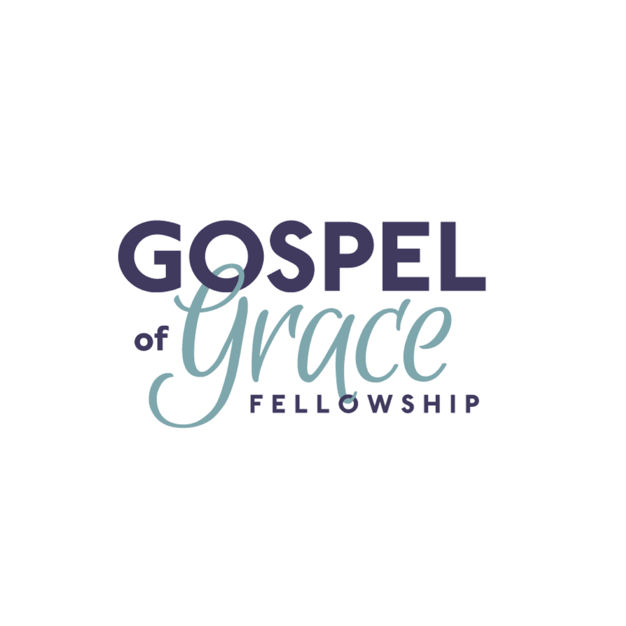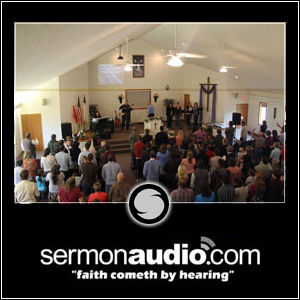
Echo Zoe Radio
Andy Olson
Echo Zoe Radio is a monthly podcast addressing issues within Christendom. Each month a different guest shares his or her expertise in a subject that is both interesting and important, from false teaching, apologetics, eschatology, and more. Past guests have included well known people such as Justin Peters (Justin Peters Ministries), David Weaton (The Christian Worldview), Greg Koukl (Stand to Reason), Mark Looy (Answers in Genesis), Phil Johnson (Grace to You - Pyromaniacs), Mike Gendron (Proclaiming the Gospel Ministries), Gabe Hughes (WWUTT - When We Understand the Text), Mike Abendroth (No Compromise Radio), Dr. R. Scott Clark (Heidelblog), and Dr. James White (Alpha & Omega Ministries); as well as less well-known people equally as knowledgeable in their respective area.
- 1 hour 21 minutesAndrew Rappaport & Fred Butler: 2024 Roundtable
Andrew Rappaport and Fred Butler return for the sixth annual Roundtable. The three of us each brought a topic to discuss for roughly 20 minutes. We start with Andrew, who wanted to talk a little about “Christian Nationalism,” primarily that he doesn't like the use of the term. Fred followed with a discussion of “Worldviews,” which came out of his book on Apologetics. To finish, we talk about Christians participating in politics, primarily through voting, but also about other forms of participation.
23 December 2024, 3:00 am - 1 hour 14 minutesRyan Habbena: The Seed Promise

Ryan Habbena walks us through the seed promise, from the curse on the serpent following the Fall in Genesis to the ultimate victory in Revelation.
(02:00) Exploring the Seed Promise and War
(13:26) The Seed War and Promise
(27:49) Advancing the Seed Promise
(36:22) Comparing Genealogies in Gospels
(43:41) Understanding the Seed Promise Fulfillment
(56:40) The Seed Promise UnveiledScriptures Referenced
- Genesis 3:15
- John Chapter 8
- Galatians Chapter 3
- 2 Samuel 7
- Matthew Chapter 1
- Luke Chapter 3
- Revelation 12
1 August 2024, 12:00 pm - 1 hour 10 minutesWill Dobbie: Mourning
Will Dobbie is pastor of Emmanuel Church of Knoxville, Tennessee, and author of “From Everlasting to Everlasting: Every Believer's Biography,” and “A Time to Mourn: Grieving the Loss of Those Whose Eternities Were Uncertain.” He returns to talk about mourning the deaths of loved ones who are either unsaved, or whose salvation is unclear.
Scriptures Referenced
- Leviticus
- Mark 7
- 1 Corinthians 10
- Colossians 3
- Romans 14
- Isaiah 64
- Acts 17
- Joshua 5
- Romans 9
- Exodus 33
Additional Resources
27 April 2024, 1:00 pm - 1 hour 21 minutesKofi Adu-Boahen: Law & Gospel
Kofi Adu-Boahen is pastor of Redeemer Bible Fellowship in Medford, Oregon. Kofi has been with us several times, and returns once again, this time to talk about Law and Gospel.
Outline of the Discussion
- The Gospel is at the center of our Christian lives. Without understanding the relationship between the Gospel and the Law of God, we lose the sweetness of the Gospel.
- This discussion is based on the book A Treatise on the Law and the Gospel, by John Colquhoun (pronounced Ko-hoon.) Colquhoon was a 19th century Scottish pastor influenced by a group that was concerned about legalism in the church.
- We look at three aspects of law. First is the moral Law, or Natural Law. Next is the Law as given to Adam. Third is the Law as is in the hand of Christ.
- We don't do what the Law requires to merit eternal life, but rather in gratitude for His Grace.
- The Law of Moses is handled separately from the previously mentioned aspects of Law. It had elements of both the Law given to Adam and Grace.
- Chapter 5 of Colquhoon's book gets into what the Gospel really is.
- The Gospel is presented in both a broad sense, and a narrow sense. In the broader sense, everything that Christ and the Apostles taught was “the Gospel.” It's really a mix of the Law and the Gospel. In the narrower sense, the Gospel is the explanation of the good news.
- In the strictest sense, every command of God is a Law.
- The Law is subservient to the Gospel.
- The Law is not the Gospel, and the Gospel is not the Law. Ignorance of the difference promotes a self-righteous character.
- An understanding of the Gospel is not, by nature, antinomian
- “We weren't saved by Christ, to be sanctified by Moses.” “The way in is the way along.”
- Motivation is the master of Reason.
Scriptures Referenced
- James 2:10
- Romans 2
- Exodus 19-20; 24:8
- Deuteronomy 16
- 2 Corinthians 3
- John 1:17
- Luke 2:10-11
- Titus 2
- Colossians 2:6
- Romans 6
Additional Resources
- A Treatise on the Law and the Gospel – Free Book
3 March 2024, 4:00 pm - 1 hour 21 minutesGabe Hughes: Christianity & Entertainment
Gabe Hughes is pastor of Providence Reformed Baptist Church in Casa Grande, Arizona. He’s also an author, and creator of WWUTT, or When We Understand the Text, a ministry in which he creates Youtube videos, writes books, and has a daily podcast. For this episode, Gabe and I talk about Christians and Entertainment. We touch on various aspects, from Christian Entertainment production, to the kind of entertainment that we, as Christians, are comfortable consuming, and what entertainment do we allow our kids to consume.
Scriptures Referenced
- Philippians 4:8
- Ephesians 5
- Colossians 3
- Ephesians 2
- Matthew 12:34
- 1 Corinthians 10:31
- Titus 1:12
- Acts 17:28
- 1 Corinthians 8-10
7 January 2024, 12:00 pm - 1 hour 24 minutesAndrew Rappaport & Fred Butler: 2023 Roundtable
Andrew Rappaport and Fred Butler return for the sixth annual Roundtable. The format is more free-form this time around. It’s a fun discussion that begins with Fred talking about Bigfoot, and ends with Andrew discussing “No Quarter November.”
5 December 2023, 3:00 pm - 1 hour 2 minutesAndrew Rappaport: Modern Israel
Andrew Rappaport is the founder of Striving for Eternity Ministries, and co-creater of the Christian Podcast Community. He’s also a frequent guest, and is back for his ninth episode of Echo Zoe Radio. Andrew returns to talk about the history and politics of modern Israel. Andrew lays out the governments of the land from the Ottoman empire to the current day, and the nature of the conflict over the land that persists, and which has boiled over in recent weeks.
4 November 2023, 7:00 pm - 1 hour 17 minutesGene Clyatt: The Witch Trials
Gene Clyatt returns for a fourth installment of English Reformation history {at least in regard to the time-period.) Gene was first on with me in August of 2021, where he talked about the early days of the English Reformation under Henry the 8th and Bishop Thomas Cranmer. In the May, 2022 episode, Gene returned to talk about England under Queen Elizabeth I. Last November, he talked about England under King James I.
For this episode, we get into the Witch Trials. Gene gives some history on how they began, talks about how King James brought them to Scotland and England, and how they ended up in the American Colonies, with Salem being the best-known.
Outline of the Discussion
- King James I was the single most responsible person for bringing Witch Hunts into Scotland and England. They had been going on in Europe for around a century, having begun just prior to the Reformation.
- Witch trials began with Heinrich Kramer, a German Dominican monk and inquisitor in the late 15th century.
- Kramer wrote “Malleus Maleficarum” (The Hammer of Witches) in 1486.
- Kramer was a lot like Alfred Kinsey; a sexual deviant and pervert.
- In August of 1589, at the age of 23, King James of Scotland married Princess Anne of Denmark, who was 14. The wedding was held by proxy.
- In September of 1589, Anne set sail for Scotland from Denmark. They had to turn back because of storms. She blamed witches, whom she accused of wanting to prevent the powerful union that would benefit Protestantism.
- At the time, witch trials had been common in Northern Germany and Denmark.
- In October of 1589, James set sail for Denmark. They were hit by storms too, but he made it.
- While in Denmark, James becomes fascinated with witches and witch trials.
- Upon his return to Scotland, he strengthened the Scottish Witchcraft Act of 1563; imposing the death penalty upon convicted witches. He would later do the same in England after becoming King of England.
- A series of witch trials resulted from the storms inhibiting James and Anne from uniting. In Denmark, the Kronborg witch trials resulted in six women being accused and convicted, and two being executed. In Scotland, the North Burwick witch trials ran for over two years, and implicated over 300 people; both noble and commoner alike.
- Agnes Sampson was accused of being the ringleader of the witches in Scotland. John Fian, a schoolmaster, was implicated as well. Both were executed by burning.
- In 1597, James publishes a book “Daemonologie.”
- Witch hunting was mostly carried over by the Reformers from Medieval Catholicism, and not addressed in a meaningful way.
- Witch hunting in England reached its peak during the English Civil War. Each side accused supporters of the other side of witchcraft. It was much more political than religious, pitting Parliament against the Crown rather than Puritan against Anglican.
- Matthew Hopkins was the most famous person regarding witch trials to come out of the English Civil War. He gave himself the title “Witch-finder General,” and claimed to have Parliamentary authority (he did not.) He would get a town's approval for a witch hunt, then get people to accuse each other.
- Hopkins wrote a book called “The Discovery of Witches.”
- In the Colonies, Salem was among the last of places to undergo witch trials.
- By the late 17th Century, the excesses of witch trials became apparent. Much of it due to the smaller populations in New England.
Scriptures Referenced
- Exodus 22:18
Additional Resources
- Malleus Maleficarum – Heinrich Kramer
- Dæmonologie – King James (VI of Scotland, I of England) (1597)
- The Discovery of Witches – Matthew Hopkins (1647)
- Witchcraft at Salem – Chadwick Hansen
Related Episodes
15 October 2023, 5:00 pm - 1 hour 9 minutesJonathan Worthington: Training Leaders

Jonathan Worthington is adjunct professor of theology at Bethlehem College and Seminary in Minneapolis, Minnesota, incoming Chaplain for the North Hennepin Composite Squadron of the Civil Air Patrol, and Director of Research at Training Leaders International. He joins us to talk about training pastors and ministry leaders around the world.
Outline of the Discussion
- Jonathan grew up in Virginia. He went to seminary at Reformed Theological Seminary in Jackson, Mississippi, and then moved to Scotland to study for his PhD. Following that, he stayed on full-time with his church in Scotland, before taking a position as a New Testament professor at Belfast Bible College in Belfast, Northern Ireland. After changes in UK immigration policy, his family was forced to return the the US. It took some time before ending up where he is now, but for the last seven years he's been at Training Leaders International (TLI) in Minneapolis, Minnesota.
- His position allows him to incorporate three passions that are difficult to combine: academics, serving the local church, and working in cross-cultural settings.
- Jonathan describes Marcus from India, who was the village “doctor,” only because he had slightly more knowledge of medicine than the average villager. When several villagers became Christians along with Marcus, they all just assumed he'd be their pastor.
- TLI started out as a ministry of Bethlehem Baptist Church. While they are still very friendly, they have since split off and are independent.
- TLI teaches local leaders in short, intense training sessions. There are nine week-long training sessions spread over three years. After each teaching session, attendees are tasked with finding people to teach what they just learned over the next four months leading up to the next training session.
- Jonathan taught Maria in the Philippines. Maria was excited, and knew exactly who she wanted to teach. The problem was that the people she wanted to teach were not literate.
- Jonathan had been reading about orality, or oral-based learning. (Aural is a similar term pertaining to hearing.) There's a spectrum that ranges from Primary-Oral to Primary-Literate, with many points in between.
- He came up with a strategy with Maria to be able to go back and teach those who could not read.
- Being more Oral can have advantages. Our brains retain different types and amounts of information depending on the type of thinking we do (oral vs. literate.)
- Throughout history, most people have learned by hearing. From the priestly teaching in the time of Christ to the churches of the Middle Ages, people heard the scriptures preached. Maria would go on to teach in her home village in similar manner.
- Most of the places TLI does work in are open countries, where ministry work is allowed. For some closed countries, they can fly people to a nearby open country for training, then send them home.
- They typically feel safe in the places where they go. However, they often need to be discrete for the sake of the people they are serving. White faces showing up can put a target on the locals.
- In discussing open vs. closed, we talked about Dubai. The United Arab Emirates is closed, but Dubai is very open. It's a popular tourist destination. There is a seminary there, and churches. Proselytizing is not allowed though. It used to be a place where people from closed countries could be brought in for training.
- Jonathan has taught in: India, Mongolia, the Philippines, Romania, Turkey, Tanzania, Uganda, Brazil, Panama, and Chile. They also have a “Diaspora Program” that teaches immigrants in the US who then go to their communities to lead their own people groups.
Additional Resources
Jonathan's Scholarly Articles on Global Theological Education:
Orality’s Breadth and Depth Mature Together: The Task of Teaching in Missions Navigating Empathy Deep Motivation in Theological Education Engaging Reading Romans with Eastern Eyes by Jackson Wu Spiritual Formation by Training Leaders in Their Indigenous Cultures: The Importance of Cultural Humility and Virtue Theory A Vision and Philosophy for Developing a Curriculum of Non-Formal Cross-Cultural Theological EducationJonathan's Articles for Popular Venues:
When Decaying Bodies Meet a Creator God Deep Learning that Transforms Would Paul Be Considered a Bad Missionary Today? Hope Beyond Heaven and Justice Now Put on Trifocals: God is More Than Sovereign The Bible’s Story on a Kid’s Napkin Have We Missed the Honor-Shame Focus in Scripture? Our Mission Remains Essential23 September 2023, 10:00 pm - 1 hour 17 minutesAllen Nelson: Regeneration
Allen Nelson is pastor of Providence Baptist Church in Perryville, Arkansas. He’s also the author of “Before the Throne: Reflections on God's Holiness,” “From Death to Life: How Salvation Works,” and “A Change of Heart: Understanding Regeneration and Why it Matters.” He also writes for Things Above, a Christian group blog dedicated to Missions, Evangelism, Theology, and Sports, which is at thingsabove.us. In addition to Things Above, he has some articles up at Founders Ministries as well. He returns this month to discuss Regeneration, which is not only the subject of his latest book, but is a great follow-up to his most recent show with us on Effectual Calling.
Outline of the Discussion
For this episode, the outline has been created using the AI tool Podium.page.
- (0:00:01) – Regeneration (9 Minutes)
Alan Nelson, pastor of Providence Baptist Church and author of multiple books, shares his insights on regeneration and how it affects our understanding of salvation and the Christian life. Alan's book, “A Change of Heart: Understanding Regeneration and Why it Matters” is discussed, and how to get a copy.
- (0:08:43) – Regeneration's Importance (9 Minutes)
Alan shares his journey exploring regeneration and its impact on other Christian doctrines. He discusses the debate between Pelagianism and Augustinianism, and how Wesley's prevenient grace and Charles Finney's views have shaped the church. Alan shares his own experience, including the decision to write his book and how he taught the doctrine of regeneration during COVID-19.
- (0:17:58) – Grace, Synergism, and Monergism (5 Minutes)
We explore the differences between Pelagianism and Augustinianism, and examine the concept of semi-Pelagianism. We point out how dangerous this understanding of grace can be, and how it denies the sufficiency of God's grace. We also get into the Mormon teaching of ‘after all we can do' and how it relates to synergism. Lastly, we discuss the concept of monergism and how it works in contrast to synergism.
- (0:22:38) – Doctrine of Monergism and Regeneration Discussion (10 Minutes)
We get into the implications of the idea of prevenient grace and point out that it raises more questions than it answers. Allen explains how the concept of prevenient grace does not satisfy the problem of why some individuals respond to the gospel and some don't. He emphasizes how regeneration touches every area of our lives, and how it is not a process of perfection, but rather a redirection of desire and love toward Christ. The noblest desires of those who reject monergism are commendable but ultimately don't defend God's justice and fairness.
- (0:32:10) – Open Theism and Necessity of Regeneration (12 Minutes)
We point out that Open Theism can be a logical [but errant] way to approach the problems with synergistic view of soteriology. We confront the concept of fairness as a challenge to monergistic regeneration; our attitude about someone we love who is not saved, and how the answer is to preach the gospel to them. Jesus promises that all who call on the name of the Lord will be saved; which is a refutation of a major misunderstanding of monergism, and very assuring promise. Allen shares his experience of taking the gospel to the streets of his small town, and we explain how this is a logical consequence of the very doctrine we are discussing.
- (0:44:19) – The Significance of Regeneration (13 Minutes)
We explore the necessity of being born again and how Jesus was speaking to all of humanity when he said it. We also discuss the use of Southern vernacular (“y'all”) and the differences between singular and plural of “you” in the modern English language. Finally, we look at the concept of longevity in regards to regeneration and how there is no such thing as unregeneration.
- (0:57:13) – Doctrinal Differences and the Holy Spirit (5 Minutes)
We explore the intricate connection between regeneration and the local church. We discuss why the Father and the Son do not need help in salvation, and why the Holy Spirit doesn't either. We explain why understanding regeneration correctly matters, and how it affects the local church, which is meant for believers only. We also examine how to know if a person is a Christian, and the use of the plural for “you” when Jesus said “you must be born again.”
- (1:01:57) – Regeneration, Assurance, and Evangelism (16 Minutes)
We discuss the logical arguments used by the Puritans to understand regeneration. We also look at an approach to memorizing scripture; how reading a book of the Bible every day for a month can help in the process. Finally, we examine the necessity of being born again and the connection between regeneration and the local church. We emphasize the role of the church in providing assurance of salvation and the need to flee from all known sin.
Scriptures Referenced
- 1 Peter 1:3
- John 3
- John 6:63
- Jonah 2:9
- Ephesians 2
- Isaiah 43:13
- 1 John 3:14
Additional Resources
- A Change of Heart: Understanding Regeneration and Why it Matters – Allen Nelson
- A Change of Heart, Ch. 1 — Heart Matters
- The Rural Church Podcast 2.0
Related Episodes
- Bob DeWaay: Open Theism and the Doctrine of Election
- Phil Johnson: The Doctrines of Grace
- Dr. James White: Sola Gratia & Sovereign Grace
- Phil Johnson: Sola Fide
- Bob DeWaay: The Doctrine of the Church
- Dan Phillips: The World-Tilting Gospel
- Kofi Adu-Boahen: Union with Christ
- Nate Pickowicz: Solus Christus
- Allen Nelson: How Salvation Works
- Allen Nelson: Effectual Calling
- Chris Hohnholz: The Sinfulness of Sin and Our Desperate Need for the Gospel
12 August 2023, 2:00 pm - (0:00:01) – Regeneration (9 Minutes)
- 1 hour 25 minutesRyan Habbena: The Christian’s Relationship to the Sabbath
Ryan Habbena is pastor of Conquering King Fellowship church in Eagan, Minnesota, Instructor at Village Schools of the Bible, President of the Mount Moriah Foundation and Zera Biblical Films, and board member of Echo Zoe Ministries. He joins us this month to talk about the Sabbath, from the historical requirements of Sabbath keeping to the contemporary, New Testament understanding of the Sabbath.
Outline of the Discussion
- The Law, the Prophets, and the New Covenant writings have much to say about the sabbath.
- Addressing “Christendom” in the broadest sense (Catholic, Eastern Orthodox, Protestant, and even Cultic,) there is a broad range of views regarding the sabbath.
- Seventh Day Adventism, which Ryan describes as “a more tolerable cult,” has in it's very name the adherence to sabbath-keeping, and that the sabbath is the seventh day of the week (Saturday.) It is an Antichrist doctrine that strays, according to them.
- Within mainline Protestant denominations, we find the “Puritan sabbath,” which is the understanding that the sabbath has been changed from the seventh day to the first day.
- Within Messianic Judaism, we have a traditional sabbath, in keeping with traditional Judaism.
- It's helpful to look at the whole counsel of God in regard to the sabbath. The discussion of the sabbath begins with the seventh day of creation, in which God ceased. This began the seven day cycle.
- There is no command to keep the sabbath prior to Moses. Compare this to circumcision, which begins with Abraham.
- It is in the Decalogue (Ten Commandments) that we first see a command to keep the sabbath. (Exodus 20:8-11)
- It is in the commandment that the issue becomes more complicated.
- The other nine commandments are transcendent. We would say they are all still binding under the New Covenant.
- The place to start with a New Testament understanding is with the commands of Christ. What does He have to say about the specific Mosaic command regarding the sabbath?
- In Exodus 35, we see the penalty for sabbath-breaking is death.
- There is also a sabbath for the land. The land shall be cultivated for six years, and allowed to rest on the seventh year.
- There is both continuity and discontinuity between the Mosaic Law and the New Covenant. An example of continuity is that the only way anyone is saved, in any era, is by Grace through Faith. No one has ever been saved by observation of the Law.
- The rabbinical elements of Judaism had their rise during the Second Temple (Intertestamental) period. A major controversy among the rabbinical schools was in regards to how to observe the sabbath. What is bound, and what is loosed?
- The sabbath customs are very strange to the non-Jew. For example: the willingness to load the dishwasher on Saturday, but unwillingness to press the “start” button to allow the dishwasher to run (loading it seems to be the work, not running it, but they see things differently because of what the rabbis teach.) Similarly, the elevators have a “sabbath” mode, whereby the door opens and closes at every floor; there is no need to press any buttons.
- Some of the tension between Jesus and the rabbis was their perception that He was breaking the sabbath.
- Jesus deliberately violated rabbinical traditions without violating the Law.
- As an aside, in Martin Luther's hymn “A Mighty Fortress is our God,” we find the line “Lord Sabaoth His Name.” This does not mean “Lord of the Sabbath,” but rather “Lord of Hosts.”
- Jeremiah prophesies a New Covenant (31:31-34.) This covenant is not like the covenant made with their fathers.
- The issue of the sabbath is directly related to Covenant. It matters which covenant we are under.
- The sabbath is something valuable to be looked towards as a believer, but is not in regards to an old covenant law.
- Romans 14 speaks to differences between the old and new covenants; things like what to eat, what festivals to observe, and days to regard. If we, as new covenant believers, were called to observe the sabbath as was done under the old covenant, this is where Paul would have clarified as such.
- We shouldn't see sabbath as a day to worship, but rather as something that points us to the perfect, finished work of Jesus Christ. We who believe enter into His sabbath rest.
- Paul likewise rebukes the Colossians over their practice of judging each other in regards to several old covenant practices (2:16-17)
- The consistent thread is that it is okay (or good) to continue to observe old covenant practices such as sabbath keeping. What is not okay (or good) is commanding others to do the same.
- The author of Hebrews links belief to sabbath rest (3:16-4:13.)
- Other views of sabbath (views that hold Christians to sabbath observance, lead to a slippery-slope. If we are to observe the sabbath as in the old covenant, must we make lists of forbidden activities? What must the punishment be for failure to observe the sabbath?
Scriptures Referenced
- Genesis 2:1-3
- Exodus 20:8-11
- Exodus 35:1-3
- Exodus 23:10-11
- Matthew 16:19
- John 5:1-17; ch. 9
- Jeremiah 31:31-34
- Hebrews 8
- Acts 2, 15
- Romans 2
- Romans 14: 1-6
- Colossians 2:16-17
- Hebrews 3:16-4:13
17 July 2023, 11:00 am - More Episodes? Get the App
Your feedback is valuable to us. Should you encounter any bugs, glitches, lack of functionality or other problems, please email us on [email protected] or join Moon.FM Telegram Group where you can talk directly to the dev team who are happy to answer any queries.
 Logical Belief Ministries Podcast
Logical Belief Ministries Podcast
 RedGraceRadio – RedGraceMedia | Evangelical, Evangelistic, and Reformed
RedGraceRadio – RedGraceMedia | Evangelical, Evangelistic, and Reformed
 Voice of Reason Radio
Voice of Reason Radio
 Critical Issues Commentary Radio
Critical Issues Commentary Radio
 Gospel of Grace Fellowship, Sermons (St Louis Park Minnesota)
Gospel of Grace Fellowship, Sermons (St Louis Park Minnesota)
 Fellowship Baptist Church
Fellowship Baptist Church